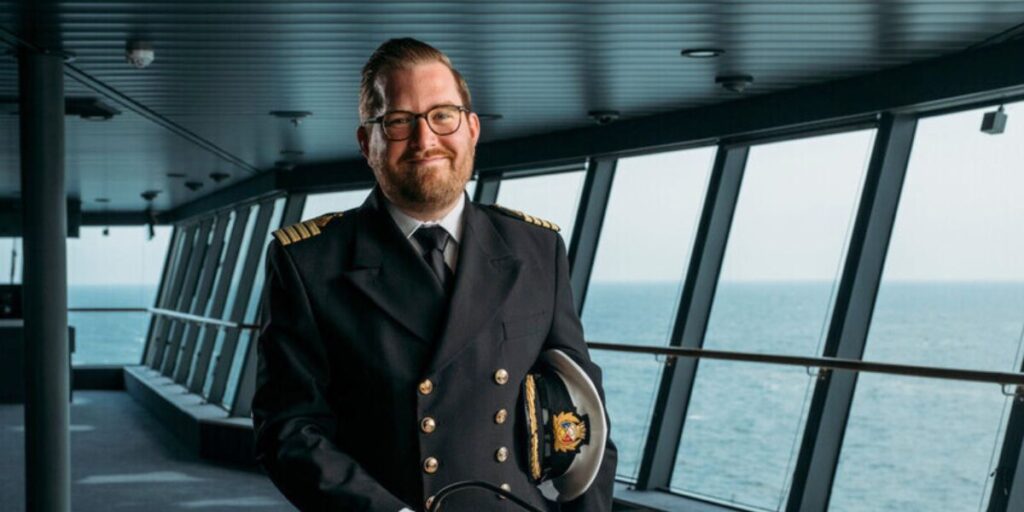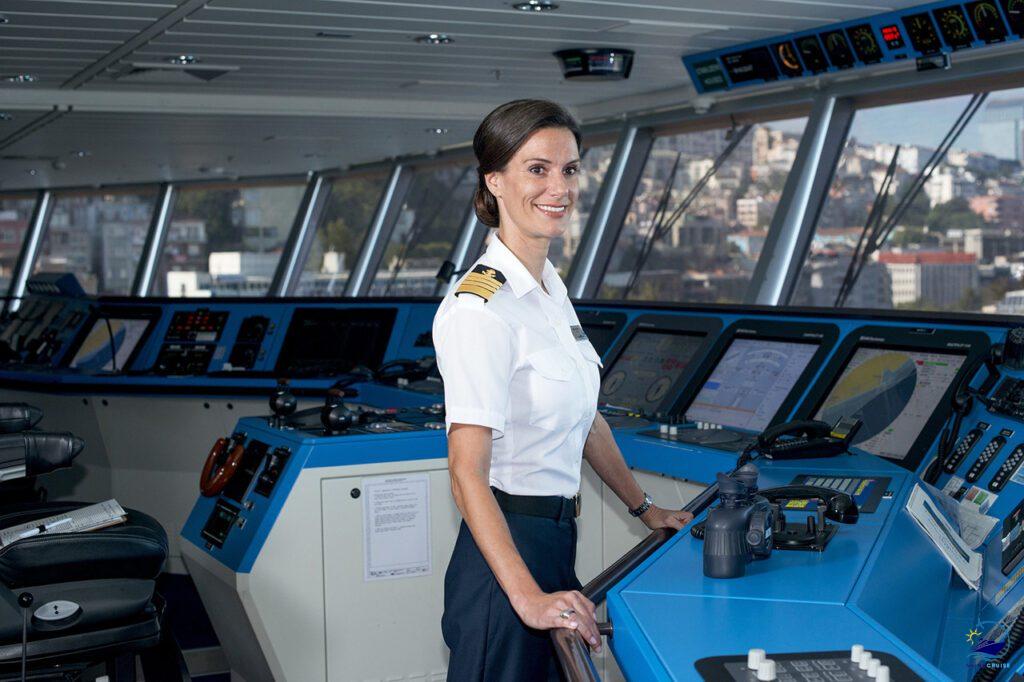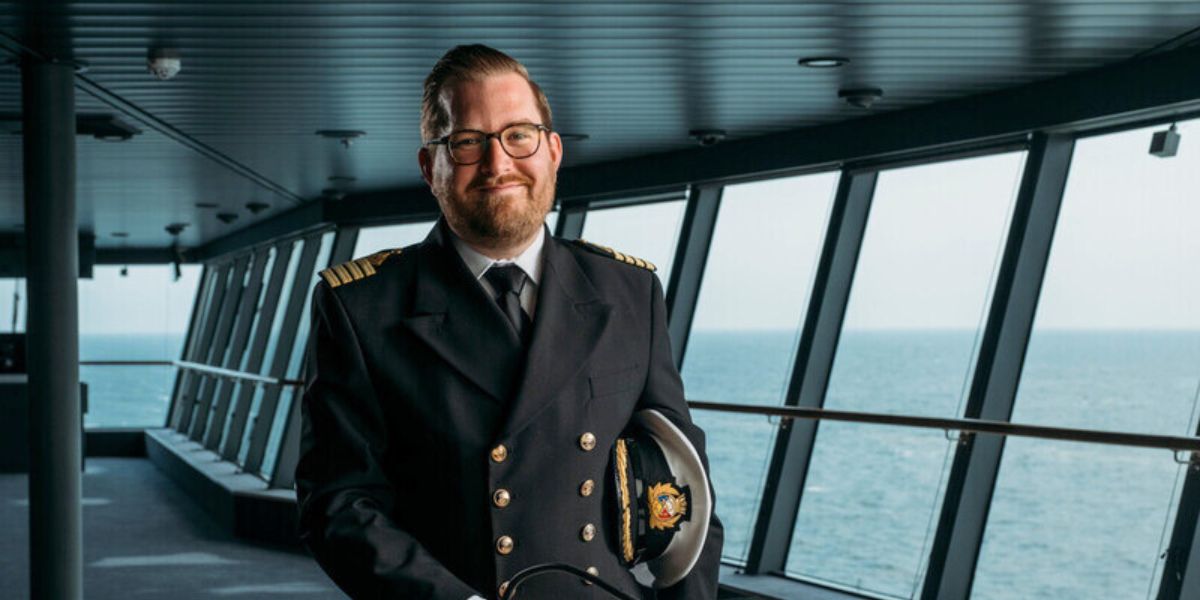Have you ever wondered how much a cruise ship captain earns? This job is important and exciting. Cruise ship captains have many responsibilities. They ensure the safety of passengers and crew. They navigate the ship through different waters. But, how much do they make? Let’s find out.
Responsibilities of a Cruise Ship Captain
A cruise ship captain has many duties. They are the leader of the ship. They are responsible for the safety of everyone on board. Here are some of their tasks:
- Overseeing the ship’s operations
- Navigating the ship
- Ensuring the safety of passengers and crew
- Making important decisions during emergencies
- Managing the crew
The captain is the top authority on the ship. They need to make quick decisions. They need to solve problems. They must be skilled and experienced.
Education and Training
Becoming a cruise ship captain is not easy. It requires education and training. Here are the steps:
- Complete high school
- Attend a maritime academy
- Gain experience as a deck officer
- Obtain necessary licenses and certifications
Have you ever wondered how much a cruise ship captain earns? This job is important and exciting. Cruise ship captains have many responsibilities. They ensure the safety of passengers and crew. They navigate the ship through different waters. But, how much do they make? Let’s find out.
Responsibilities of a Cruise Ship Captain
A cruise ship captain has many duties. They are the leader of the ship. They are responsible for the safety of everyone on board. Here are some of their tasks:
- Overseeing the ship’s operations
- Navigating the ship
- Ensuring the safety of passengers and crew
- Making important decisions during emergencies
- Managing the crew
The captain is the top authority on the ship. They need to make quick decisions. They need to solve problems. They must be skilled and experienced.
Education and Training
Becoming a cruise ship captain is not easy. It requires education and training. Here are the steps:
- Complete high school
- Attend a maritime academy
- Gain experience as a deck officer
- Obtain necessary licenses and certifications
A maritime academy teaches navigation, safety, and ship operations.
“After graduation, one must work as a deck officer. This job helps gain experience. It can take many years to become a captain.”
Becoming a cruise ship captain is a journey that typically spans 15-20 years. The path begins with at least four years of university education, focusing on maritime studies. Following this, aspiring captains must complete specialized training courses tailored to maritime work.
Once equipped with this foundational knowledge, individuals start their careers as deck officers. This role is essential for gaining practical experience and understanding the intricacies of ship operations. As they progress, it’s common to move through various ranks, each requiring additional qualifications and certifications.
Working under the mentorship of an experienced captain allows for further skill development and insight into the responsibilities of leadership at sea. Even after reaching the coveted position of captain, one might find themselves at the lower end of the pay scale, highlighting the need for continued learning and advancement in this demanding field.
Licenses and certifications are also needed. These prove that the captain is qualified.

Salary of a Cruise Ship Captain
Now, let’s talk about the salary. How much does a cruise ship captain make? Their salary can vary. It depends on several factors. These include the size of the ship, the cruise line, and the captain’s experience.
| Experience Level | Average Salary |
|---|---|
| Entry-Level | $50,000 – $70,000 per year |
| Mid-Level | $70,000 – $100,000 per year |
| Experienced | $100,000 – $150,000 per year |
| Highly Experienced | $150,000 – $200,000 per year |
Entry-level captains earn between $50,000 and $70,000 per year. As they gain more experience, their salary increases. Mid-level captains can make between $70,000 and $100,000 per year. Experienced captains earn from $100,000 to $150,000 per year. Highly experienced captains can make up to $200,000 per year.
Who are the highest-paid individuals on a cruise ship? This question opens up a fascinating discussion about the hierarchy and earning potential of various positions on board.
Senior Officers
On most cruise ships, the captain often holds the title of the highest-paid individual. However, this isn’t always the case. Other senior officers, such as the Chief Engineer or the Hotel Director, can surpass the captain’s salary if they boast more experience or unique skills essential for the cruise line’s success.
Medical Professionals
In addition to senior officers, cruise ship doctors are notable for their high earnings due to the critical nature of their role in maintaining passenger and crew health. Their compensation reflects both their medical expertise and the demands of working in a unique maritime environment.
Commission-Based Crew
Interestingly, some crew members operate on a commission basis and have the potential to earn substantial incomes. For example, art auctioneers who sell high-value pieces on luxury cruises can see their earnings skyrocket, sometimes even exceeding that of the captain. This potential to earn more depends largely on the type of cruise and the success of the sales made on board.
In summary, while captains typically rank as the top earners on a cruise ship, experienced officers, highly-skilled professionals, and commission-based roles can significantly impact the pay scale, introducing variability in who might actually earn the most.

Factors Influencing Salary
Several factors affect a cruise ship captain’s salary. These include:
- Experience: More experience means a higher salary.
- Size of the Ship: Larger ships often pay more.
- Cruise Line: Some cruise lines pay better than others.
- Location: Salaries can vary by region. Cruise ship captains are sourced from all over the world, and their home base can significantly impact their salary. While captains live on the ship for months, those from Europe and North America typically earn more. This is largely due to the higher cost of living in these regions, which influences salary standards. Cruise lines cast a wide net to find crew, often hiring those willing to work for lower wages. However, the pool of qualified captains is limited, making those from the US, Canada, or Europe highly sought after and well-compensated. This dynamic reflects both the scarcity of experienced captains and the economic conditions in their home countries.
Experience is crucial. Captains with more experience earn more. The size of the ship also matters. Larger ships pay higher salaries. Different cruise lines have different pay scales. Some pay better than others. Location also plays a role. Salaries can vary by region.
In addition to these factors, the size and success of a cruise company significantly impact captain salaries. Larger, more successful companies are in a position to offer higher wages. These companies aim to attract top talent to ensure they can provide the best experience for their passengers. By offering competitive salaries, they secure the finest captains who can manage the complexities of large-scale operations effectively.
The ability to pay more is not just a matter of resources; it’s a strategic decision. Successful companies understand that the quality of leadership onboard directly affects passenger satisfaction and safety. Therefore, they invest in attracting experienced and skilled captains to maintain their reputation and operational excellence.
How Prestige Affects a Cruise Captain’s Salary
When it comes to determining a cruise captain’s salary, the prestige of the ship plays a crucial role. Prestige is often linked to the ship’s reputation, size, and standing in the industry. Ships celebrated for their luxury, size, or unique offerings demand proficiency and a steady hand at the helm, which naturally influences salary expectations.
High-Reputation Ships: Greater Responsibility
Captains of well-regarded and high-profile vessels often command higher salaries. These ships, due to their large size and the significant investments they represent, require leaders who can handle the complexities of operating under increased scrutiny and expectation.
Salary Implications
- Increased Value: High-prestige ships are seen as flagship vessels, often acting as the face of the cruise line. The captain, therefore, needs to maintain high standards, influencing salary scales upward.
- Experienced Leadership: Ships that are known for their prestige or uniqueness often attract well-versed captains who can seamlessly manage both the vessel and the guest experience, justifying more substantial compensation.
In essence, the more prestigious the ship, the more likely its captain will enjoy elevated salary packages, reflecting the added responsibility and visibility of the position. This salary is a reflection not just of skill required, but of the trust and reputation the captain must uphold.
Gender Differences in Cruise Ship Captain Salaries
Have you ever wondered if gender affects how much cruise ship captains earn? There might be more to the story than you think.
While it may not be widely acknowledged, some anecdotes suggest that cruise ship salaries can indeed vary based on gender. One cruise ship captain, preferring to remain unnamed, mentioned that female captains might sometimes earn higher salaries than their male counterparts. This discrepancy can be attributed to the cruise line’s desire to promote diversity and enhance their public image.
Why Do These Differences Exist?
- Public Relations Strategy: Companies often strive to showcase a commitment to diversity and inclusion. Offering competitive salaries to female captains can enhance their public image.
- Attracting Female Talent: In an industry traditionally dominated by males, competitive pay can be a strategic way to attract and retain skilled female professionals.
The Reality
While not all cruise lines have this salary disparity, it’s noteworthy that some captains believe it exists for strategic reasons. Understanding the context and motivations behind these decisions helps to illuminate the complexities of salary structures within the cruise industry.
How Tax Laws Can Boost the Earnings of Cruise Ship Captains
Cruise ship captains often enjoy unique financial advantages, thanks to certain tax regulations that apply to their profession. Let’s delve into how these laws may work in favor of their earnings.
Potential Tax Exemptions
One significant benefit is related to residency rules in various countries. Captains who spend a substantial portion of the year—often categorized as being “non-resident”—outside their home country might be eligible for tax exemptions. This means they can reduce or even eliminate their income tax obligations during the months they are at sea.
International Waters Advantage
Operating in international waters often offers a tax-friendly status. Since captains perform their duties beyond the jurisdiction of any one country’s tax laws for long stretches, many captains find themselves in a category that allows them to optimize their take-home pay.
Additional Perks
- Housing and Meals: While on duty, accommodation and meals are typically provided by the employer. This can lead to substantial savings, as captains do not have to allocate part of their salary for these everyday expenses.
- Travel Allowances: Some taxation systems offer allowances or reliefs for individuals required to travel extensively for work, which may reduce taxable income further.
By leveraging these benefits, cruise ship captains can enhance their effective salary, maintaining a higher standard of living compared to many other professions with comparable base salaries.
Benefits and Perks
Apart from the salary, cruise ship captains enjoy other benefits. These include:
- Free meals
- Free accommodation
- Health insurance
- Travel opportunities
- Discounts on cruises
Captains get free meals and accommodation. They also receive health insurance. Travel opportunities are a big perk. They get to visit many places. Discounts on cruises are another benefit.
Cruise ship captains often have the unique opportunity to bring their family on board without incurring extra costs. However, given the demanding nature of a captain’s role, which requires them to be on duty at various times, families typically don’t remain on the ship throughout the captain’s entire contract. Instead, they may visit for shorter periods, such as a few days at a time, whenever feasible. This arrangement allows families to spend time together without excessive separation, offering a balance between professional and personal life.
Challenges of the Job
Being a cruise ship captain is not easy. It has its challenges. These include:
- Long working hours
- Being away from family
- High responsibility
- Handling emergencies
- Managing a large crew
Captains work long hours, typically around 12 to 16 hours per day. This schedule persists daily for about 10 to 12 weeks straight. During this time, captains have no days off and are often away from family, making the role demanding both professionally and personally.
Even when they aren’t officially on duty, captains remain on call to handle any emergencies that may arise, underscoring their high responsibility. Whether it’s navigating rough seas or addressing unexpected issues, they must be ready to act.
After their extended stint onboard, captains are given a break of a similar length—usually around three months. This rotation system helps prevent burnout, as managing a large crew and ensuring the ship’s safety demands constant vigilance.
These challenges make the job tough but rewarding. The unique balance of responsibility and leadership required to manage such a floating city is unmatched, offering captains both significant challenges and unparalleled experiences.
Frequently Asked Questions
What Is The Average Salary Of A Cruise Ship Captain?
A cruise ship captain makes about $80,000 to $150,000 annually.
Do Cruise Ship Captains Get Bonuses?
Yes, many captains get performance-based bonuses.
How Much Experience Does A Cruise Ship Captain Need?
A captain usually needs 15 to 20 years of experience.
What Factors Affect A Cruise Ship Captain’s Salary?
Experience, ship size, and company.
Conclusion
A cruise ship captain has a significant job. They ensure the safety and smooth operation of the ship. They earn a good salary, which varies based on experience and other factors. Captains also enjoy many perks. However, the job comes with challenges. Long hours, high responsibility, and being away from family are some. Overall, being a cruise ship captain is a rewarding career.

